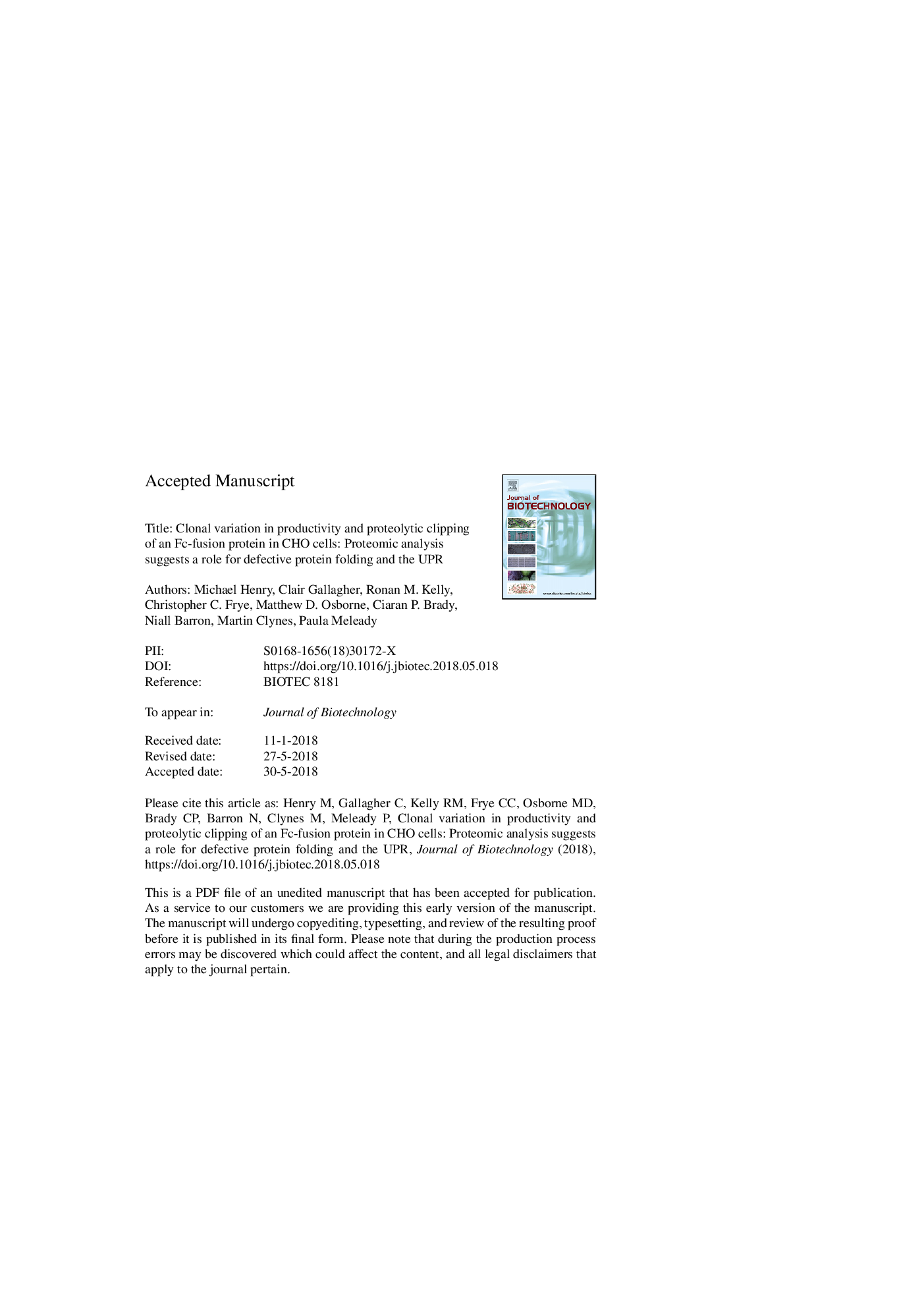| Article ID | Journal | Published Year | Pages | File Type |
|---|---|---|---|---|
| 6490147 | Journal of Biotechnology | 2018 | 32 Pages |
Abstract
Product degradation, such as clipping, is a common quality issue in the production of Fc-fusion proteins from Chinese hamster ovary (CHO) cells. Degradation of proteins is mainly due to the action of either intracellular or extracellular host cell proteases. This study was carried out to understand more fundamentally the intracellular events that may play a role in determining why cell lines from the same cell line development project can vary with regards to the extent of Fc-fusion protein clipping. The cell lines that displayed the highest levels of clipping also produced less product than the cell lines with a lower level of clipping. In this study we applied differential quantitative label-free LC-MS/MS proteomic analysis to group clonally-derived cell lines (CDCLs) based on the level of clipping of the Fc-fusion protein. The analysis was carried out over two times points in culture and clones were designated as either having 'high' or 'low' clipping phenotypes. We have identified 200 differentially expressed proteins using quantitative label-free LC-MS/MS analysis between the two experimental groups. Functional assessment of the resultant proteomic data using Gene Ontology analysis showed a significant enrichment of biological processes and molecular functions related to protein folding, response to unfolded protein and protein translation. The levels of several proteases were also increased. This study identified protein targets that could be modified using cell line engineering approaches to improve the quality of recombinant Fc-fusion protein production in the biopharmaceutical industry.
Keywords
Related Topics
Physical Sciences and Engineering
Chemical Engineering
Bioengineering
Authors
Michael Henry, Clair Gallagher, Ronan M. Kelly, Christopher C. Frye, Matthew D. Osborne, Ciaran P. Brady, Niall Barron, Martin Clynes, Paula Meleady,
